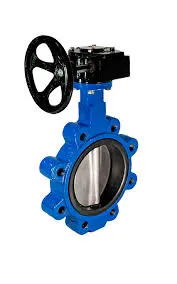Nov . 27, 2024 04:25 Back to list
Resilient Seated Gate Valve for Enhanced Performance and Durability in Fluid Control Systems
Resilient Seated Gate Valve A Key Component in Modern Fluid Control Systems
In the world of fluid control systems, the resilience and reliability of components are paramount. Among these, the resilient seated gate valve plays a crucial role in ensuring efficient operation in various applications, from water distribution networks to industrial processes. This article delves into the characteristics, applications, and advantages of resilient seated gate valves, illustrating their importance in contemporary systems.
What is a Resilient Seated Gate Valve?
A resilient seated gate valve is a type of valve that utilizes an elastic material to create a seal between the valve body and the gate. Unlike traditional gate valves, which may utilize metal-on-metal seating surfaces, the resilient seated valve employs a soft, flexible element, often made from rubber or polymer, to ensure a tight seal when closed. This design reduces the chance of leakage and enhances the valve's sealing capability.
The operation of a resilient seated gate valve is straightforward. When the valve is in the closed position, the gate is pressed against the resilient seat, creating a barrier to fluid flow. When the valve is opened, the gate is lifted away from the seat, allowing fluid to flow freely. This mechanism enables the valve to handle various media, including water, wastewater, and certain chemicals, making it a versatile choice for multiple applications.
Key Features
1. Durability Resilient seated gate valves are engineered to withstand harsh environments. The resilient materials used in the sealing surface provide resistance to wear, corrosion, and aging, ensuring a long service life.
2. Low Operating Torque These valves require relatively low force to operate, which simplifies the actuation process. As a result, they contribute to reduced operational costs and ease of maintenance.
3. Minimal Pressure Loss When fully open, resilient seated gate valves provide a straight flow path, minimizing pressure loss and turbulence. This characteristic is particularly beneficial in systems where maintaining flow efficiency is essential.
4. Versatile Application The design makes these valves suitable for a wide range of applications, including municipal water supply, sewage treatment, irrigation systems, and industrial processes. They can also be employed in both underground and above-ground installations.
resilient seated gate valve

5. Easy Installation and Maintenance The valve's construction allows for straightforward installation and maintenance, further enhancing its appeal to engineers and operators. Regular maintenance can be performed with minimal downtime, ensuring that the system remains operational.
Applications
Resilient seated gate valves are utilized across diverse sectors. In municipal water systems, they are commonly used to control the flow of potable water, allowing for effective local distribution and pressure management. In wastewater treatment facilities, these valves help regulate the flow of sewage and sludge, facilitating efficient processing.
In industrial applications, resilient seated gate valves are crucial for managing various fluids, from oils and chemicals to slurries. Their ability to handle different media without leaking makes them a preferred choice in industries such as petrochemicals, food and beverage, and pharmaceuticals.
Additionally, the valves find use in fire protection systems. They can be employed in hydrants and sprinkler systems to ensure reliable operation during emergencies. The robust design ensures that they will function correctly under demanding conditions.
Advantages Over Traditional Valves
One of the primary advantages of resilient seated gate valves over traditional metal-seated valves is their superior sealing capabilities. The elastic nature of the resilient material allows for better conformance to the seating surface, significantly reducing the potential for leakages. Moreover, the flexibility of the seat can accommodate minor misalignments and surface imperfections, which might otherwise lead to valve failure in metal-seated designs.
Another advantage lies in their operational efficiency. The reduced torque required to operate a resilient seated gate valve translates into less strain on the actuator, prolonging its lifespan and reducing energy consumption.
Conclusion
The resilient seated gate valve is a vital component in modern fluid control systems, offering durability, efficiency, and versatility. With their enhanced sealing capabilities and low operating torque, these valves have become the preferred choice for many applications across various industries. As the demand for reliable and efficient fluid management continues to grow, resilient seated gate valves will undoubtedly remain at the forefront of advancements in valve technology, ensuring that they meet the challenges of the present and future.
Share
-
Reliable Wafer Type Butterfly Valves for Every IndustryNewsJul.25,2025
-
Reliable Flow Control Begins with the Right Ball Check ValveNewsJul.25,2025
-
Precision Flow Control Starts with Quality ValvesNewsJul.25,2025
-
Industrial Flow Control ReliabilityNewsJul.25,2025
-
Engineered for Efficiency Gate Valves That Power Industrial PerformanceNewsJul.25,2025
-
Empowering Infrastructure Through Quality ManufacturingNewsJul.25,2025